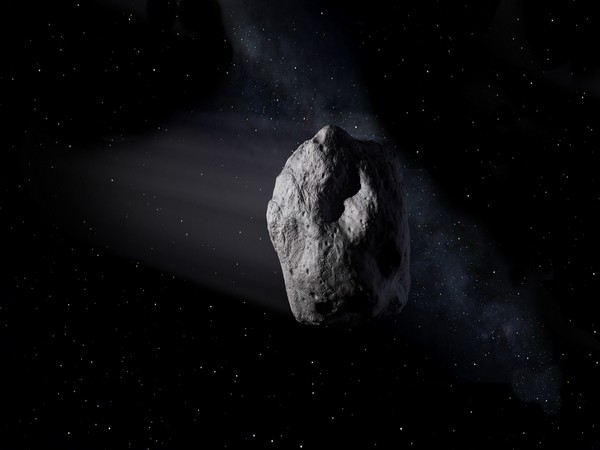Science News Roundup: Samples from asteroid more than hoped for, Japan researchers say; Kangaroos can learn to communicate with humans, researchers say and more
The samples, the climax of a six-year space odyssey to the Ryugu asteroid by the space probe Hayabusa2, arrived in Japan last week but researchers did not know for sure until this week if they had actually gotten anything. Kangaroos can learn to communicate with humans, researchers say Kangaroos can learn to communicate with humans similar to how domesticated dogs do, by using their gaze to "point" and ask for help, researchers said in a study published on Wednesday.

Following is a summary of current science news briefs.
Samples from asteroid more than hoped for, Japan researchers say
Samples of dust collected by a Japanese space probe from an asteroid some 300 million km (186 million miles) from Earth were better than hoped for, with one researcher saying he was lost for words when they opened the capsule for the first time. The samples, the climax of a six-year space odyssey to the Ryugu asteroid by the space probe Hayabusa2, arrived in Japan last week but researchers did not know for sure until this week if they had actually gotten anything.
Kangaroos can learn to communicate with humans, researchers say
Kangaroos can learn to communicate with humans similar to how domesticated dogs do, by using their gaze to "point" and ask for help, researchers said in a study published on Wednesday. The study involved 11 kangaroos that lived in captivity but had not been domesticated. Ten of the 11 marsupials intently gazed at researchers when they were unable to open a box with food, according to the report. Nine alternately looked at the human and at the container, as a way of pointing or gesturing toward the object.
Russia successfully test launches heavy lift space rocket after long hiatus
Russia on Monday successfully test launched its heavy lift Angara A5 space rocket after a six-year hiatus in a project President Vladimir Putin describes as having huge significance for national security. First test-launched in 2014, it is being developed to replace the Proton M as Russia's heavy lift rocket, capable of carrying payloads bigger than 20 tonnes into orbit. A launch pad for the new rocket is due to open in 2021.
A dinosaur with 'hair' and 'ribbons' has scientists enthralled About 110 million years ago along the shores of an ancient lagoon in what is now northeastern Brazil, a two-legged chicken-sized Cretaceous Period dinosaur made a living hunting insects and perhaps small vertebrates like frogs and lizards. On the inside, it was ordinary, with a skeleton similar to many small dinosaurs from the preceding Jurassic Period, scientists said on Tuesday. On the outside, it was anything but.
Immune system can cause broad damage in COVID-19; dogs can detect coronavirus in people The following is a roundup of some of the latest scientific studies on the novel coronavirus and efforts to find treatments and vaccines for COVID-19, the illness caused by the virus. Immune system can self-attack broadly in COVID-19
New and rediscovered species found in pristine Andes of Bolivia A scientific expedition high in the Bolivian Andes revealed 20 species new to science, including "lilliputian frog" plus four rediscovered species including the "devil-eyed frog" previously thought to be extinct, Conservation International said. The expedition was led by the environmental group and the government of capital city La Paz. It included 17 scientists who went to the Chawi Grande, a locality belonging to the Huaylipaya indigenous community near La Paz.
Thai researcher wonders if chicken feathers on the menu might fly When Sorawut Kittibanthorn was looking for new types of waste to recycle, the then London-based student was drawn to the millions of tons of chicken feathers being discarded each year.
Now back in his homeland of Thailand, the 30-year-old is seeking funding to continue his research into how best to convert the nutrient component found in the feathers into a powder that can be transformed into a lean, protein-rich source of edible food.
(This story has not been edited by Devdiscourse staff and is auto-generated from a syndicated feed.)
- READ MORE ON:
- London-
- Vladimir Putin
- Japanese
- Thai










